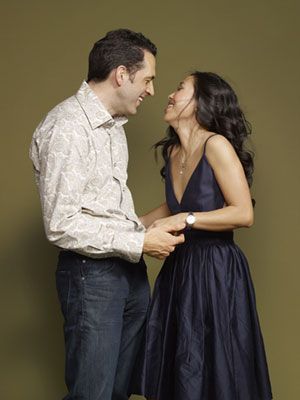Marriage
Get Sexual Change in a Relationship - Go First! Change First
How to know if sexual change is authentic and permanent
Posted September 11, 2012

Changing sexual patterns is tough. Accepting change is tougher. We want to know two things about our partner’s about-face: Is it from their heart? Will it last?
Malcom came into see me after a dismal seven years of marriage. He had begged his wife to show a little enthusiasm while they made love and to initiate more often. Hadn’t happened. He was fed up and angry. In desperation, they came to see me and she started to change. It made him madder.
When our partner changes, we are forced to question some of our conclusions, particularly—the fact that we suspect we have just married a selfish person who doesn’t love us. Also if it happens in during therapy, there’s this weird sense of exposure in front of the therapist, too. Like when we were little and told our parents that Johnny WAS poking us but when they turn around to reprimand Johnny, he’s all smiles with his hands to himself. Accepting our partner’s essential selfishness is often how we’ve survived it even if no one has witnessed our patience. We imagine ourselves the more virtuous of us two and feel a certain satisfaction in our righteous suffering. In an odd way, it’s safer to cling to our unhappiness rather than enjoy the evolution we’ve longed for; we are afraid that to relax will mean we are vulnerable again when the rug is pulled out from under us. Importantly, our reaction is the counterforce to change that keeps thing homeostatic. With a continued stony resistance to their efforts, we drive our partner right back to their old ways.
Malcom wanted a guarantee that his wife would really keep wanting sex. He was afraid that she was only seeming to want it to keep him in the marriage. How could he be sure her motives were genuine? How could he be sure that the sex would get better?
Meredith’s husband had had an affair. He left the other woman as soon as it was discovered and brought Meredith flowers. She asked me how she could know if he left because he wanted the marriage or if he left because he was caught. How could she ever feel safe and trust that he would never cheat again?

The answer is… you can’t know. At least not right at the time of change. Based on history, you may feel foolish believing what your partner says. You may feel foolish that you want to believe what your partner says. I am not advocating carte blanche forgiveness for anything and everything. Hurtful event and patterns must be thoroughly processed. If the pattern or injury is too severe to go forward, you must decide against the marriage. But if you stay in the marriage, then you are essentially deciding to keep working on it. The dilemma is that while you are in that process—if you withhold yourself, if you withhold all reassurance for the new changed pattern—you jeopardize the possibility of a new future with this partner.
One way to put aside your anxiety about whether the change is permanent and authentic is to set a “retrospective date.” If in six months you are fairly certain that you will have your answers—choose a literal date. Then, lay aside suspicion and do everything in your power to support your partner’s change. Encourage even partial efforts. You will lessen the drag of the homeostatic force that pulls against change in every system.
Pursuers often want change. Distancers say, “no matter what I give you, it’s not enough for you.” Pursuers answer, “Damn straight, because you have starved/neglected me.” We often justify our angry response on what has happened unmitigated by what is happening. My question for you is when does change stop being just a drop in the debt bucket and begin to be rain on the crops growing in the fields of your future?

Link for more help from Laurie Watson with SexTherapy in Raleigh, Cary, Greensboro and Chapel Hill, NC. Laurie’s book Wanting Sex Again is available on Amazon!


